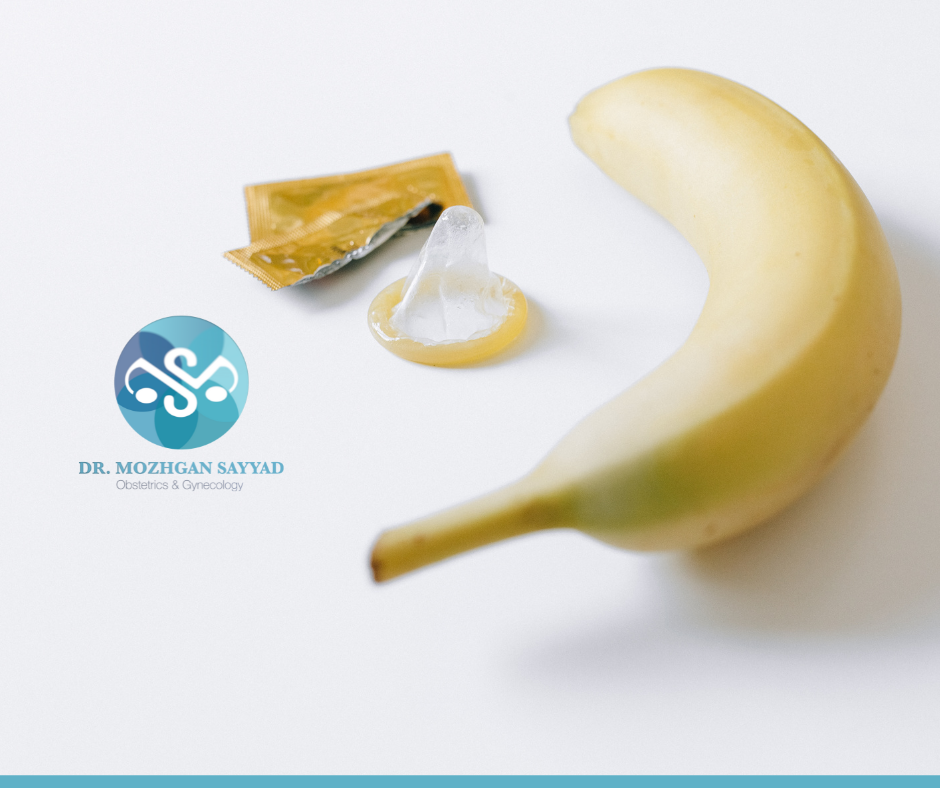Table of Contents
Dr. Moghzan Sayyad, from Dubai, shares three easy ways to prevent yourself from sexually transmitted diseases or STD
Understanding Sexually Transmitted Diseases / Infections
As the name suggests, STDs, or STIs, are diseases or infections transmitted sexually. According to the World Health Organization, more than one million STIs are acquired every day worldwide, most of which are asymptomatic. Since STDs are so common and almost unnoticeable, it’s imperative you take the necessary precautions if you’re sexually active. This article will discuss briefly the simple methods on how you can protect yourself and your partner from STDs/STIs.
Highest Risk Groups for STD/STIs:
- Adolescent
- Young adults [15-24]
- Men who have sex with other men
- People of minority
- People with multiple partners or partners with a history of STD
- People who have unprotected sex
The Top 10 Sexually Transmitted Diseases / STD Types
- Bacterial Vaginosis
- Chlamydia
- Gonorrhea
- Hepatitis
- Herpes
- HIV/AIDS
- HPV Infection
- Mycoplasma Genitalium
- Pelvic Inflammatory Disease
- Syphilis
Common STD Symptoms
Some of the more common symptoms of sexually transmitted diseases are:
- Unusual discharge from the penis, vagina, or anus
- Pain while urinating
- Lumps around genitals or anus
- Rashes and sores
- Itchy genitals or anus
- Blisters around genitals or anus
- Warts around genitals or anus
- Warts inside mouth or throat
Symptoms of STD in Women
The common symptoms of STDs in females are:
- Changes in urination
- Abnormal vaginal discharge
- Itching in the vaginal area
- Pain during sex
- Abnormal bleeding
How to Prevent STD/STI
The bright side of STDS/STIs is that they are 100% preventable, and the best prevention method is to practice abstinence. Here’re some other simple yet effective methods to protect yourself and your partner from STDs:
- Avoid risky sexual behavior
- Have fewer partners
- Have sexual relations with partners with no history of STDs or who have taken blood tests to confirm
- Use condoms. When correctly and consistently, condoms are one of the most effective ways to prevent STIs, including HIV. Moreover, condoms also prevent unplanned pregnancies. Despite their effectiveness, condoms don’t provide protection from STIs that lead to extra-genital ulcers [syphilis and genital herpes]. Therefore, it’s advised to use condoms when having anal or vaginal sex.
- Get vaccinated. Now, there’re vaccines available for two viral STIs, HPV and Hepatitis B, which are safe and highly effective. The HPV vaccine can also prevent other HPV-related problems like genital warts and certain cancers [cervical, vulvar, vaginal, anal, and throat cancer]
Who should get the HPV vaccine?
HPV vaccines can be taken starting at nine years. It’s advisable for preteens to take HPV vaccination as it prevents them from HPV infections that can cause cancer in later stages. In the case of teens and young adults under 26 who didn’t start or finish the HPV vaccine must also take it.
Recommended STD Tests
- Individuals between the ages of 13 and 64 must test for HIV at least once
- Sexually active women under 25 must test for gonorrhea and chlamydia every year. In case of women above 25 must test for gonorrhea and chlamydia yearly if they have added risk factors like new or multiple partners or partners with STD
- Pregnant ladies must be tested for syphilis, HIV, hepatitis B, and hepatitis C during the early stages of pregnancy.
- All sexually active gay, bisexual, and men who have sex with men must be tested for [a] syphilis, chlamydia, and gonorrhea once a year. In case the individuals have multiple or anonymous partners, then they must test every three to six months [b] HIV either regularly (three to six months) or once a year [c] hepatitis C, at least once a year, if the individual is HIV-positive.
- Sexually active individuals must be tested for HIV once a year. Additionally, if someone engages in risky sexual behavior or shares injection drug equipment, then they must be tested for HIV at least once a year.
- Individuals who perform oral or anal sex must also consider throat and rectal testing options.
To know more about the prevention methods, refer to these articles by WHO and the CDC.
Related Q&A
Q1. How often should I get tested for STDs?
The frequency of STD testing depends on various factors, such as sexual activity, number of partners, and personal risk factors. It is recommended to consult with a healthcare provider to determine the appropriate testing schedule.
Q2. How often should I get tested for STDs?
The frequency of STD testing depends on various factors, such as sexual activity, number of partners, and personal risk factors. It is recommended to consult with a healthcare provider to determine the appropriate testing schedule.
Q3. How long does it take to get tested for STDs?
The time it takes to get tested for STDs varies depending on the specific test. Some tests provide immediate results, while others may require a few days or weeks for the results to be available.
Q4. Can you get an STD from a public restroom?
The risk of getting an STD from a public restroom is very low. STDs are primarily transmitted through sexual contact or contact with infected bodily fluids.
Get Expert Help Today
Are you concerned about the possibility of having an STD? Don’t let fear consume you because there is hope and help available. Dr. Mozhgan Sayyad, a renowned expert in the field of sexual health, is here to guide you on your journey toward diagnosis, treatment, and recovery. By booking an appointment with Dr. Sayyad, you are taking a proactive step towards regaining control of your health and embracing a brighter future.
Dr. Mozhgan Sayyad understands the sensitive nature of STDs and the fears that can surround them. With her extensive knowledge and compassionate approach, she creates a safe and non-judgmental space for her patients. By seeking her expertise, you can be assured of receiving personalized care that addresses your specific concerns and needs. Dr. Sayyad will provide you with accurate information, clear explanations, and effective treatment options, empowering you to make informed decisions about your health.
One of the most significant advantages of booking with Dr. Sayyad is her commitment to staying updated on the latest advancements in the field of STDs. As an expert, she keeps abreast of cutting-edge research, diagnostic techniques, and treatment protocols. This ensures that you receive the most up-to-date and effective care available. With her wealth of knowledge and experience, Dr. Sayyad can navigate the complex landscape of STDs, offering you tailored solutions that prioritize your well-being.
While it is natural to feel anxious or uncertain about STDs, it is essential to remember that these infections are treatable and manageable. Dr. Mozhgan Sayyad believes in a holistic approach that not only focuses on treating the physical aspects of the infection but also addresses the emotional and psychological impact it may have on your life. By working with Dr. Sayyad, you will gain the support and guidance necessary to overcome any fears or anxieties associated with STDs.
Furthermore, booking an appointment with Dr. Sayyad is a proactive step toward taking control of your sexual health. Regular check-ups and testing are vital in preventing the spread of STDs and ensuring early detection and prompt treatment if needed. By prioritizing your health and seeking the expertise of Dr. Sayyad, you are actively contributing to your own well-being and that of your partners and loved ones.
So, don’t let fear hold you back. Take charge of your sexual health and book an appointment with Dr. Mozhgan Sayyad today. There is hope, there is guidance, and there is a path toward healing and a brighter future. Together with Dr. Sayyad, you can navigate the journey with confidence, knowing that you are in the hands of a caring and knowledgeable professional who is dedicated to helping you overcome any challenges you may face. Remember, you are not alone, and there is a way forward. Reach out to Dr. Sayyad and take the first step towards a healthier and happier you.
Book an Appointment


